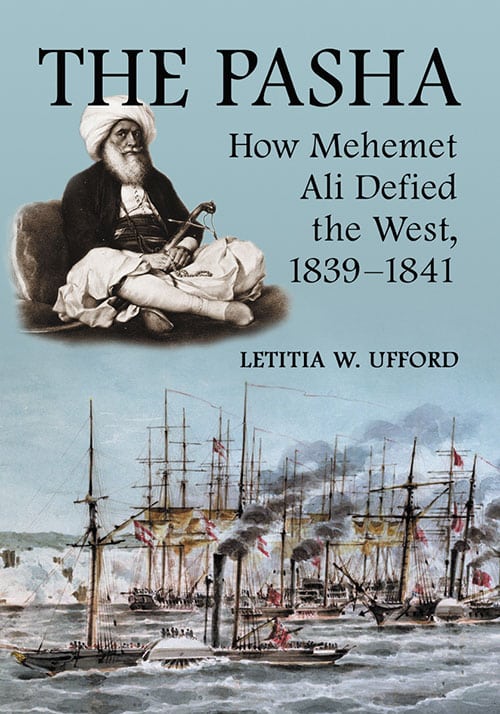The Pasha
How Mehemet Ali Defied the West, 1839–1841
$29.95
In stock
About the Book
With striking parallels to recent confrontations in Iraq, this is the story of the first Western international coalition to suppress an aggressive Middle Eastern ruler. The challenger was Mehemet Ali Pasha, called the founder of modern Egypt. Convinced that the Europeans would never be able to unite against him, he sought, with charm, brilliance and bravado, to create a powerful Muslim counterweight to the encroaching West.
Drawing on research on three continents, this timely book takes the reader into the heart of a crisis as France, Great Britain, the Ottoman government and the Pasha of Egypt maneuver to defend their interests in the Eastern Mediterranean. Here are the passionate debates among French and British politicians as they struggle to control the Pasha without provoking a European war. Here are the battlefields—from the Euphrates to Beirut—on which Mehemet Ali’s modernizing forces created the facts that fed the crisis. Here are the Sultan’s ministers at Istanbul, buffeted by the threats of European ambassadors. And here, in confrontation, is the fascinating Mehemet Ali Pasha, in constant conversation with those seeking to deflect him from his dangerous ambition. As France began the fortification of Paris, as Prussia contemplated the French threat of a war on the Rhine and as British warships flooded the Mediterranean, Mehemet Ali sat cross-legged on his sumptuous divan, looking from his palace out over his beautiful fleet at anchor in the bay of Alexandria, and challenged the western world.
About the Author(s)
Bibliographic Details
Letitia W. Ufford
Format: softcover (7 x 10)
Pages: 271
Bibliographic Info: 30 photos, maps, chronology, notes, bibliography, index
Copyright Date: 2007
pISBN: 978-0-7864-2893-9
eISBN: 978-1-4766-1860-9
Imprint: McFarland
Table of Contents
Acknowledgments vii
Preface 1
Chronology 3
List of Notable Persons 5
Introduction 9
1. The Pasha at Alexandria: June 14–15, 1839 15
2. In the Sultan’s Camp: May–June 1839 22
3. Father and Son: Northern Syria, June 1839 31
4. Nizib: Near the Euphrates, June 20–24, 1839 38
5. France Seeks a Role: Spring and Summer 1839 47
6. The First Debate: Paris, July 1–3, 1839 53
7. The Sultan and His Men: June–July 1839 59
8. Joy at Ras at-Tin: July 4–20, 1839 67
9. Diplomacy at Istanbul: July 1839–April 1840 74
10. Lord Palmerston Takes the Reins: September–December 1839 82
11. Guizot and the London Convention: February–July 1840 89
12. Ruling Syria: 1833–1840 100
13. The Revolt in Mount Lebanon: June–July 1840 107
14. Monsieur Thiers’s Game: July–October 1840 115
15. Preparing for War: May–September 1840 124
16. Beirut: July–September 1840 131
17. The Attack on Beirut: September 9–11, 1840 137
18. The Camp at Juniyah: September–October 1840 142
19. A Scattered Army: July 1839–August 1840 150
20. Defending Syria: June–November 1840 158
21. The Coalition in Combat: October 9–10, 1840 166
22. Naval Guns and Ancient Fortresses: September–November 1840 174
23. Walewski Returns: October 14–November 26, 1840 182
24. The Pasha and the Commodore: November 15, 1840–February 4, 1841 187
25. Conflict in the Cabinet: July–October 1840 196
26. Who Will Bear the Blame? Paris, November 25–December 3, 1840 203
27. Retreat from Damascus: November 1840–February 1841 214
28. The End Game: February–August 1841 222
29. Palmerston on the Hustings: Tiverton, July 31, 1847 232
30. Epilogue: 1841–1849 233
31. Kaleidoscope 237
Chapter Notes 239
Bibliography 249
Index 255
Book Reviews & Awards
- “Detailed descriptions…maps are very well done”—The Journal of Military History
- “The Pasha lets the diplomatic crisis unfold as understood and experienced by the principal actors, giving it the dramatic quality of theatre”—L. Carl Bown, Foreign Affairs
- “A fascinating account”—Afaf Lutfi al Sayyid Marsot, author of Egypt in the Reign of Muhammad Ali.





